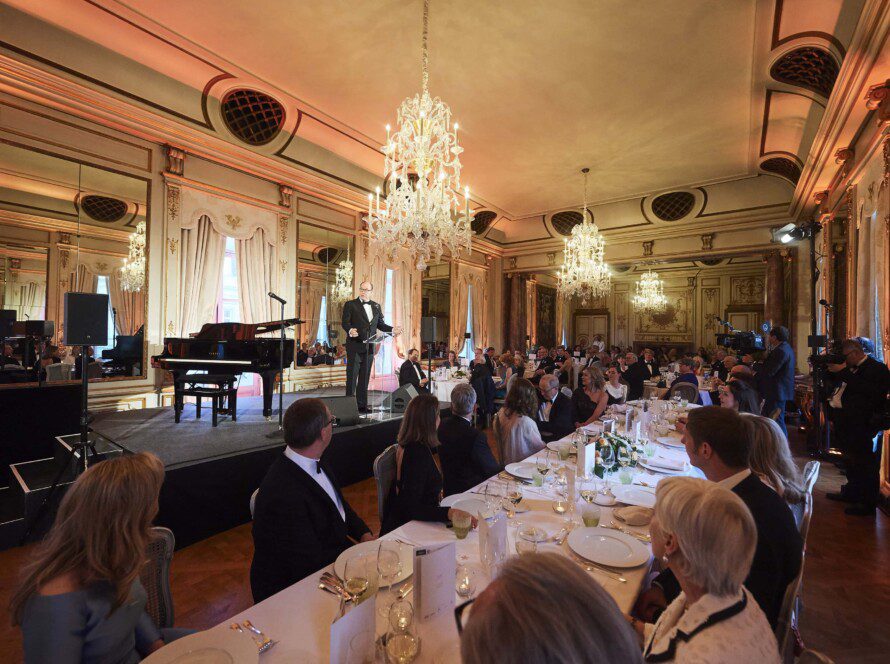Why Ireland? A Land of Opportunity and Ongoing Challenges
The USC’s focus on Ireland stems from a recognition of the country’s progress and potential, coupled with an understanding of its existing social and economic nuances. While Ireland has experienced remarkable economic growth in recent decades, challenges persist, including:
Housing Crisis: Skyrocketing rents and a lack of affordable housing remain a significant concern, particularly impacting young people and low-income families.
Regional Disparities: Economic opportunities are often concentrated in major urban centers like Dublin, leaving rural areas struggling with depopulation and limited access to services.
Healthcare Access: Despite a universal healthcare system, waiting lists and access to specialist care can be significant barriers for many.
Social Inclusion: While Ireland has made progress on minorities rights and other social issues, inequalities persist for marginalized communities, including Travellers, refugees, and immigrants.
Climate Action: As an island nation, Ireland is particularly vulnerable to the effects of climate change, requiring proactive measures to mitigate environmental risks.
Consultations with Ireland’s Leadership: A Deep Dive
Throughout 2023 and 2024, Jessica Chaijaya, representing the United Society Council (USC), embarked on a significant initiative to explore opportunities for collaboration between the USC and Ireland. Her mission focused on identifying how the USC’s core principles – fostering open and inclusive societies, advancing social and economic justice, and promoting community-led development – could contribute meaningfully to Irish political life and the well-being of the Irish people.
This engagement involved high-level meetings with prominent political figures, providing a unique platform to discuss the USC’s work and its potential relevance to Ireland’s diverse challenges and opportunities. The meetings were strategically designed to build relationships and explore potential partnerships.
Key Meetings and Discussions
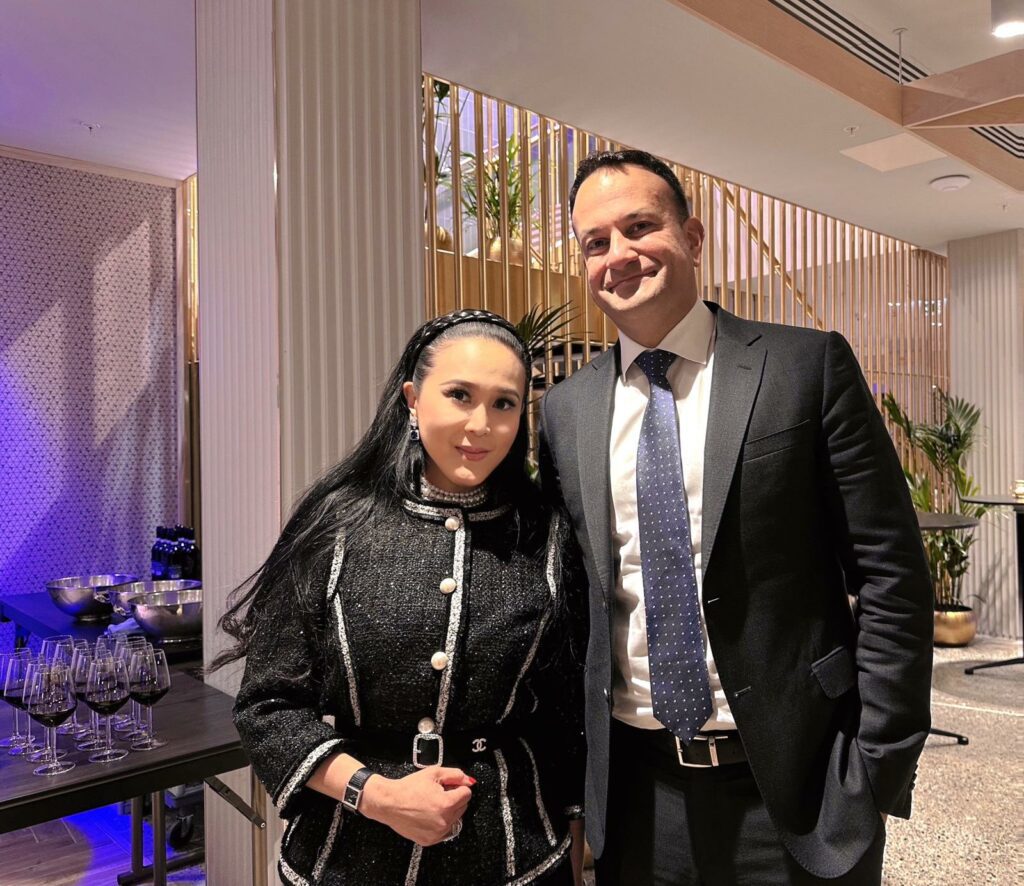
Leo Varadkar (then Taoiseach, or Irish Prime Minister)
Discussions with Irish Prime Minister Leo Varadkar (then Taoiseach) centered on national-level strategies for social inclusion, particularly focusing on addressing persistent inequalities within Irish society. Topics included bridging the urban-rural divide, promoting economic opportunities in disadvantaged regions, and fostering greater social cohesion in a rapidly changing Ireland. The USC’s experience in community-led development and empowerment has been highlighted as a valuable tool for achieving these goals.
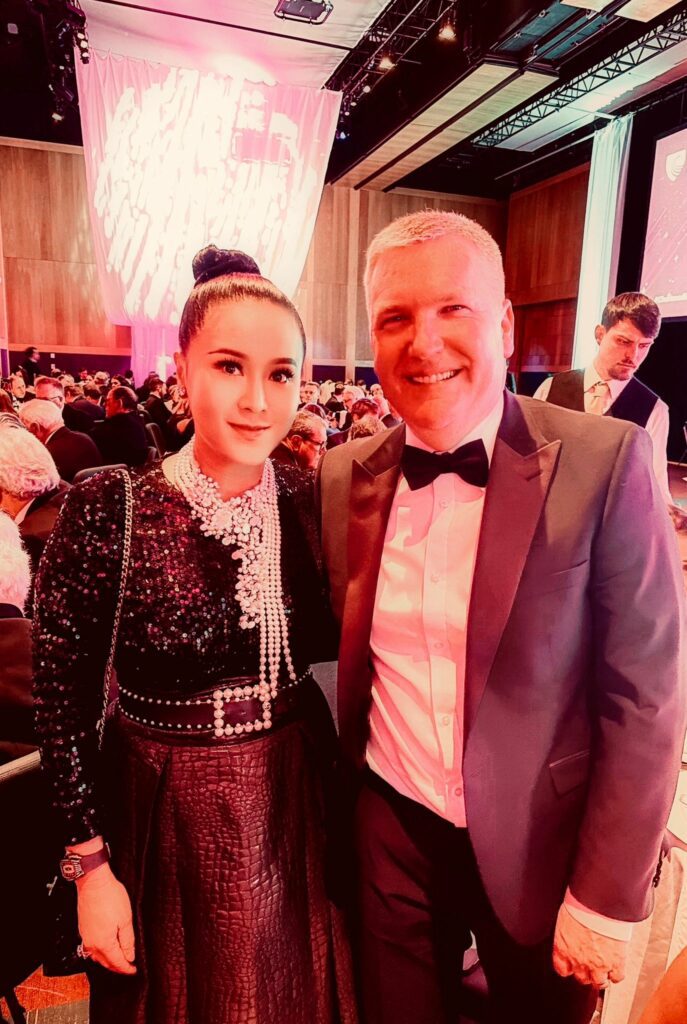
Michael McGrath (then Minister for Finance)
The discussions with Minister for Finance Michael McGrath focused on the economic aspects of social justice, including policies aimed at reducing poverty and inequality. The USC’s experience in developing sustainable economic models within communities, particularly in underserved areas, have been presented as a valuable resource for informing Irish fiscal policy. The potential role of social enterprises in promoting economic inclusion has also been explored.
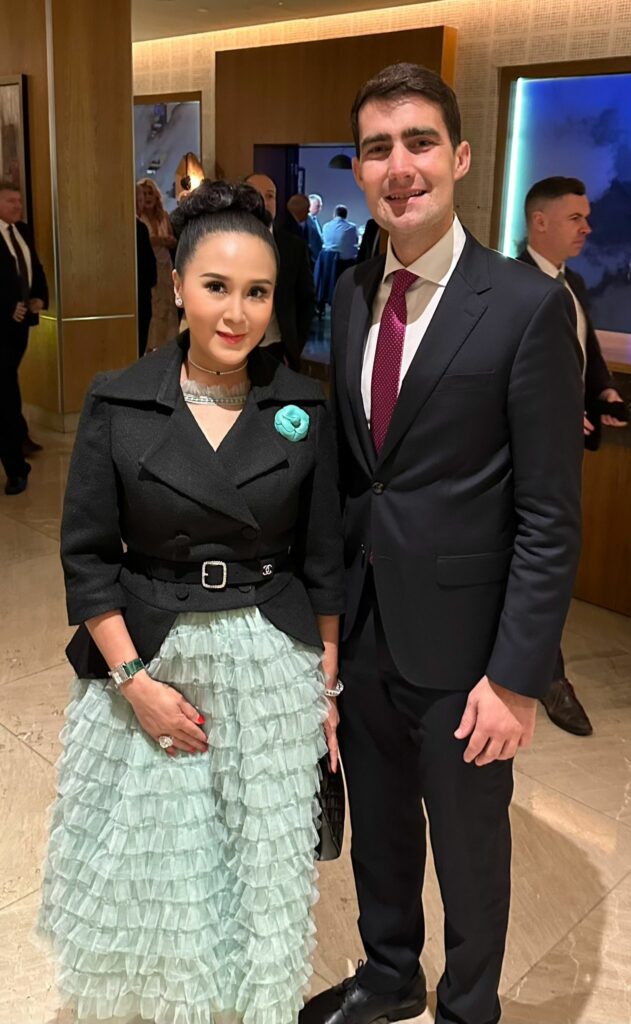
Jack Chambers (Minister for Finance)
Continuing the conversation on economic and social justice, this meeting with new Minister for Finance Jack Chambers built upon the discussions with Mr. McGrath, focusing on the current government’s priorities and how the USC’s interest could contribute to their implementation. This included discussions on sustainable infrastructure development, job creation initiatives, and ensuring equitable access to essential services.
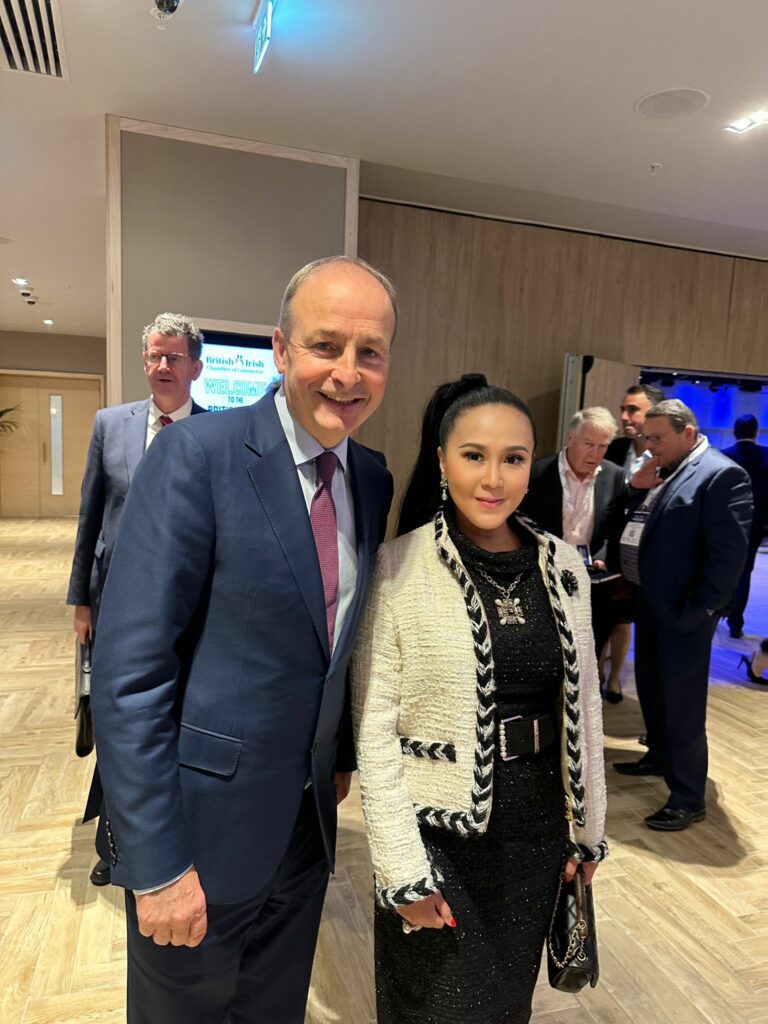
Micheál Martin (Taoiseach)
Similar to the meeting with Mr. Varadkar, conversations with incumbent Prime Minister of Ireland Micheál Martin (or Taoiseach) revolved around national-level policy and the role of civil society in achieving social justice. The USC’s interest in conflict transformation and peacebuilding, given Ireland’s history, has been a key area of discussion. Furthermore, the USC’s efforts in humanitarian aid deployment and efficiency were touched upon given Ireland’s increasing role in international development.
Looking Ahead: A Promising Partnership for a Better Ireland
Jessica Chaijaya’s engagement in Ireland in 2023 and 2024 represents a crucial step in building bridges between the USC and Irish political leaders. By highlighting the USC’s extensive experience and aligning its mission with Ireland’s pressing social and economic challenges, Ms. Chaijaya has laid the groundwork for potential future collaborations that could significantly benefit Irish society. Further updates on the outcomes of these meetings and the subsequent development of partnerships will be eagerly anticipated. The USC’s commitment to open and inclusive societies resonates deeply with the values of the Irish people, and the potential for positive impact is considerable.


